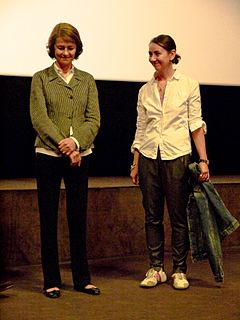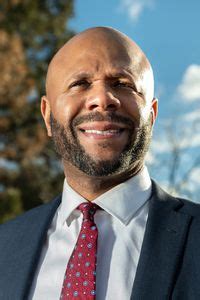A Quote by Steven Tyler
A lot of my books deal with very controversial issues that most people often don't want to talk about, issues that, in my country, are more likely to get put under the carpet than get discussed. And when you talk about moral conundrums, about shades of gray, what you're doing is asking the people who want the world to be black and white to realize instead that maybe it's all right if it isn't. I know you'll learn something picking up my books, but my goal as a writer is not to teach you but to make you ask more questions.
Quote Topics
About
Ask
Asking
Black
Black And White
Books
Carpet
Controversial
Controversial Issues
Conundrums
Country
Deal
Discussed
Doing
Get
Goal
Gray
Instead
Issues
Know
Learn
Likely
Lot
Make
Maybe
Moral
More
Most
Often
People
Picking
Put
Questions
Realize
Right
Shades
Shades Of Gray
Something
Talk
Teach
Than
Up
Very
Want
White
World
Writer
Related Quotes
The young adult literature is relatively new - it just kind of exploded in the 2000s. When I grew up, there weren't bookstores with sections dedicated to teen lit, nor was my generation raised reading books written specifically for us. Because of that, today we still think of books for teens as children's books and so when you write a book that includes sensitive topics, it just seems even more controversial. What's troubling to me about that is these are issues adults know that teens deal with. Not writing about them makes them something we don't, or can't talk about.
Conversations about films are always funny. I would say a majority of people want to talk about what were the more obvious successes; the big box office films. Other people wanting to be more sensitive to you want to talk about the ones that maybe didn't make a lot of money, but they think you might have a special feeling about. And then other people sometimes want to help you by suggesting that you should have done this or that in the movie, that that would have helped you a great deal in whatever capacity.
I always tell people, "There's a book on everyone." I get some of that book before I do anything. If I want to deeply understand someone's reputation, I'll talk to their friends, their former bosses, their peers, and I'll learn a lot about them. I want them to be trusted. I want them to be respected. I want them to give a s - -. Then there are the intangibles: physical and emotional stamina, the ability to confront issues. I can ask all I want about those things, but I also have to see a lot of it.
I think, at some level, we see young people all over the country mobilizing around different issues, in which they're doing something that I haven't seen for a long time. And that is, they're linking issues together. You can't talk about police violence without talking about the militarization of society in general. You can't talk about the assault on public education unless you talk about the way in which capitalism defunds all public goods. You can't talk about the prison system without talking about widespread racism. You can't do that. They're making those connections.
Team Hillary [Clinton] after everything came out the other night, they said, she just wants to talk about the issues. She wants to have a debate about the issues. Really, is that what their ads are about? Is that what the filth they peddle every day my candidate Donald Trump is about - they want to talk about the issues - lets talk about Obamacare its a disaster?
I belong to a bowling team with black and Latino coworkers. And when we get together and we talk about politics - I'm almost quoting him - he said, we don't talk about Black Lives Matters. We talk about what matters to our families. We talk about jobs, and we talk about the fate of the country. That is America, and you can reach those people.
As we go through this transition where a lot more people will be reading on devices, nobody is paying enough attention to make sure it's a smooth transition. I believe we still need places where people can go to handle, hold and talk about books, get information about what books are out there, and so on.




































